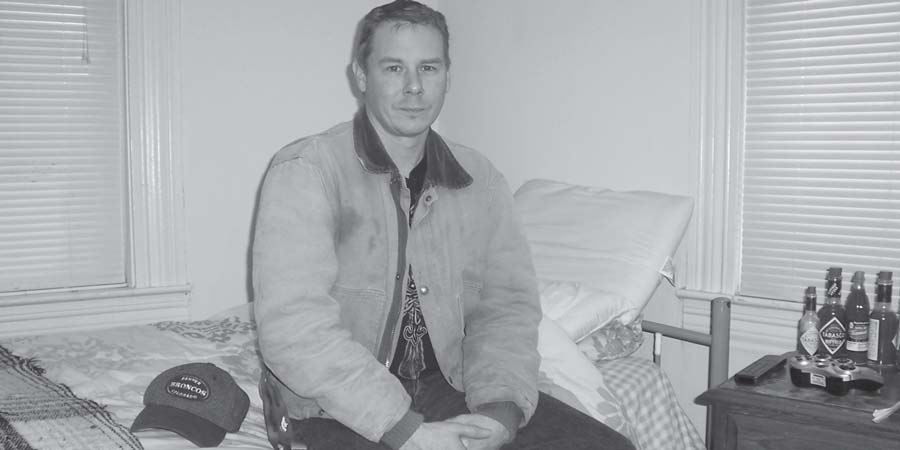March 2014 Newsletter
Download a PDF to read the full newsletter. Or read our featured article below.
A Stepping Stone

Byron referred to the Mission as “a stepping stone”, that is a solid footing to cross over a turbulent time in life. The storm began to brew much earlier than his present 39 years of age. His mother died when he was just eight. His father was a functional alcoholic and physically abused him. He left his tiny logging town when he was sixteen. Byron went from a graduating class that would have only had thirteen students to a large Portland community college. He was at least two years younger than his peer group. They called him “the kid”, and “showed him how to drink.”
Amazingly, Byron graduated with an Associate Degree in Child Psychology and Communication. But he had become disillusioned with that course fulfilling his expectations. He continued to work in restaurants, the means that had supported Byron in his Transitional Housing Program rented room. A Stepping Stone him through school. A few years later, he had worked his way up to be a chef in a fine restaurant. But his socializing still would not stop with just one drink. He lost jobs and relationships. The years went by.
He tried a fresh start in a different city, but it was really isolating without support of friends. Searching for social connection, he contacted his family that he had been estranged from for many years. He discovered that his father had died and his siblings wanted nothing to do with him. A deep depression engulfed him. In a move that took him back to the logging days of his youth, he got a job with a reforestation company. He fought the enormous Glendale forest fire of 2013. He was on the frontlines, risking safety, saving people and property. After living in a crew camp for months, he went home and blew his sobriety, relationship and money.
His girlfriend told him to go to the Mission. Byron said, “I remember walking into the dayroom. I had an overwhelming feeling of, ‘Wow, I’m at the bottom now. I don’t think I can go any further down.’ I have always been a proud man. It was a real eye opener for me. Ken (a program supervisor) was very supportive; he showed me the ropes. The Mission does its job. It was the spiritual part, and it kept me sober. Those are the two big ones here. It gave me a line out.”
After a day or two, Byron started looking for a job. In a couple of weeks, he was working in a restaurant. By six weeks, he was in our Transitional Housing Program renting a room.
Every night, that he was not working, he was in chapel. Of the chapel volunteers, he said, “Most of them were pretty cool. They have the gumption to come down here, showed me that they believe in what they are talking about. I believe in Christ the Lord. I went to church as child and was baptized in the Nehalem River. I never lost my faith.” But Byron went on to talk about the discouraging hypocrisy in people that he had worked with in the past, carousing around then inviting him to church. Then he said, “Here people practice what they preach. I love them, they are awesome. I was reawakened. There is hope! Things happen for a reason. Now, I can get on with my life. Obviously, I was not doing the right thing. When people fall, you can get your life together again. Without this facility, I don’t want to think about where I would be right now.”


Leave a Reply